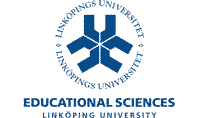
|
Visa svensk kursplan |
|
COURSE CATEGORY Fristående kurs MAIN FIELD OF STUDY SUBJECT AREA Education |
COURSE CODE | 911G39 |
- problematise knowledge assessment as a phenomenon in a historical, social and educational perspective.
- be familiar with different effects of knowledge assessment and examination
- discuss how these effects can be avoided and/or utilised in a learning process.
- account for how cheating and plagiarism in examinations are related to norms and forms of knowledge assessment
- reflect on his/her own approach to cheating and plagiarism.
- be familiar with an existing system of knowledge assessment.
- use different methods to measure, assess and grade knowledge and skills, based on theories of knowledge measurement.
- critically review knowledge assessments based on theories of knowledge and learning.
- compare, problematise and choose between different methods of knowledge assessment based on basic theories of knowledge assessment.
- reflect on his/her own learning in relation to the aims and contents of the course, and his/her own effort and achievement at the examination.
The course consists of the following subparts:
The development of knowledge assessment in the social development is an introduction that provides educational, historical and social perspectives on the development of knowledge assessment. Changes over time in the approach to knowledge, assessment policy and grading system in the Swedish education system are covered in the course
Basic theories of measurement
Scales and measurement
Reliability and validity of measurements
Criteria and norm related assessment
Factors that may interfere with assessment results
Assessment strategies
Tests and other assessment methods
Validation of previous learning as an aspect of the knowledge assessment
The functions of assessment: formative, summative, predictive
Convergent and divergent assessments. Feedback on assessments
The hidden and the visible curriculum
The effects of examination - intentional and unintentional effects on studies, teaching, lives
Cheating and plagiarism
How educational forms and system requirements lead to undesirable behaviour, cheating
Validation of knowledge and skills
Problems in validation of previous learning in relation to assessment of learning within the frame of an education
Validation as a separate activity or integrated part of learning and education
Validation in different situations - prior to and during education, professional competence etc.
Assessment systems in different contexts
In this part, students are given the possibility to specialise themselves in knowledge assessment within the context where they are active, or in which they have an interest, for example: the school grading system, national tests etc. the student and qualification assessments of the folk high school, the higher education institution examinations, grading systems, ECTS etc. validation of previous learning, certification of professional competence
The examination of the course is also a part that runs like a thread through the course. The student is involved in the examination, which becomes an additional opportunity for knowledge development and reflection on assessment, and an opportunity to tie the course together after the individual specialisations.
Students failing an exam covering either the entire course or part of the course two times are entitled to have a new examiner appointed for the reexamination.
Students who have passed an examination may not retake it in order to improve their grades.
a minimum of two completed semesters in the teacher education or at least 30 HE credits approved in a behavioural science subject.
The course is carried out in such a way that both men´s and women´s experience and knowledge is made visible and developed.
|
||||||||||||||||||||||||||||||||||||||||||||||||||||||||||||||||||||||||||||||